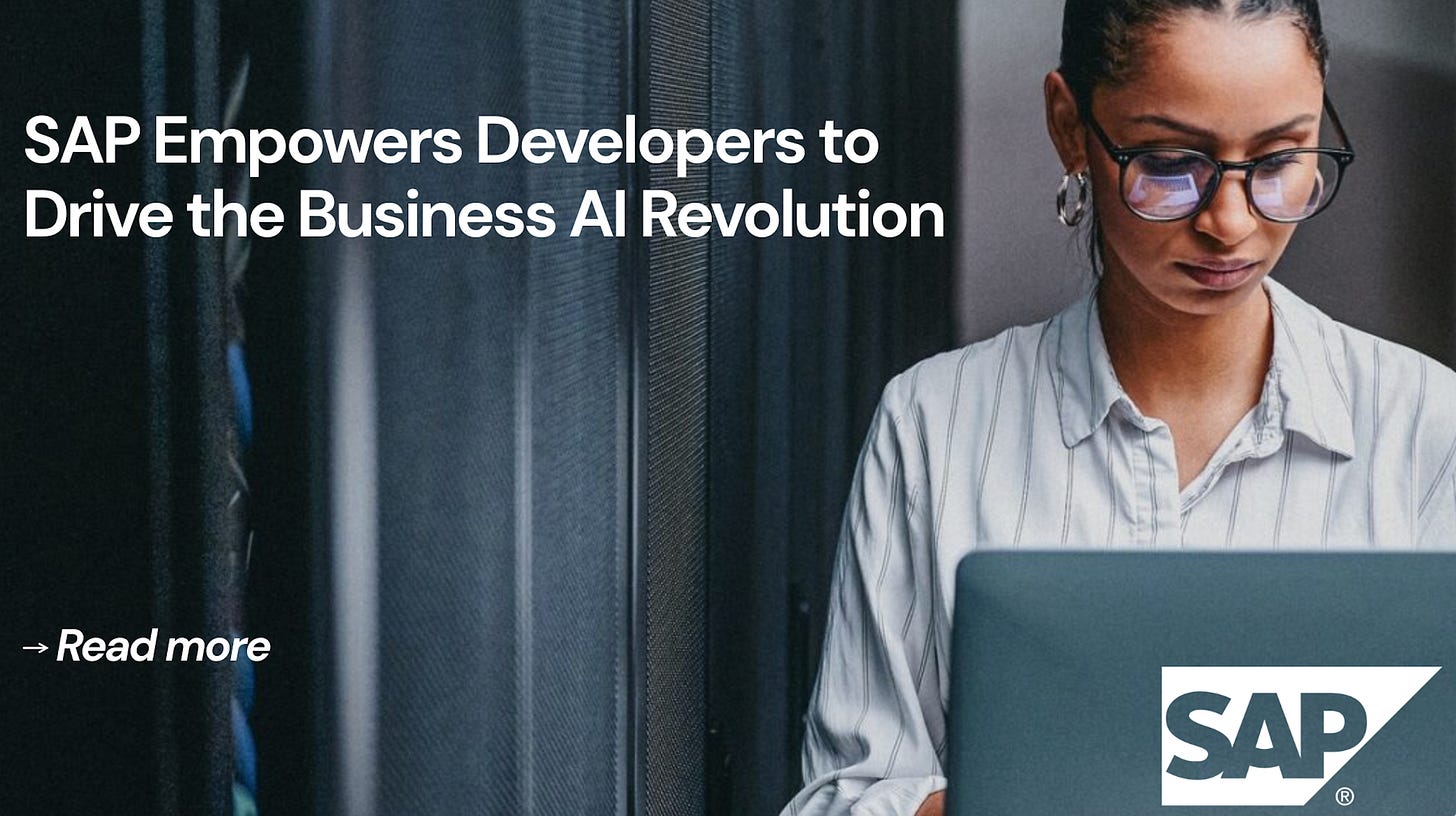OpenAI, The ‘Bailout,' and The Likely Path Forward
It's the largest private company of all time, and every executive utterance matters more. Welcome to OpenAI's new normal.
In isolation, OpenAI’s two financial miscues over the past week weren’t exactly catastrophes. Sam Altman suggesting an investor sell his shares instead of questioning OpenAI’s spending might have been good-natured ribbing. And OpenAI CFO Sarah Friar asking for the federal government to guarantee its loans, before walking it back, could’ve just been a conference slip-up.
The two flubs, whether you read them that way or not, generated a response that seemed out of proportion with the scale of the errors. Altman’s punchy response turned into a multi-day, international news story. And Friar’s comments about a potential bailout evoked a definitive “no” from the White House.
The intense scrutiny applied to every little financial statement may be new territory for OpenAI, but it’s going to be the status quo for the company moving forward. Through a flurry of deals and announcements in recent months — $100 billion from NVIDIA in September, a potential 10% stake in AMD in October, for example — OpenAI has entwined itself with the public market and the broader economy. Its deal with Microsoft last week allowed it to sell equity in its for-profit arm and put it firmly on track for an IPO. And it’s already been selling on the secondary market at a $500 billion valuation, which would place it among the 20 most valuable publicly traded companies in the world today.
But OpenAI is still a private company. And so without quarterly financial filings, its executives’ statements will serve as proxies for whether it’s acting with financial responsibility. Given how many companies are depending on its success today, that matters a lot.
Being private allows small companies to figure these things out on the way to an IPO. But OpenAI is now so large that it has effectively outrun the grace period.
The company’s ramp up has happened so fast this new environment may seem bewildering. OpenAI said ChatGPT had 200 million users in August 2024, it doubled that to 400 million users in February 2025, and it doubled it again to 800 million users last month. The company had $5.5 billion in annualized revenue in 2024, it’s on track for $20 billion annualized revenue by the end of this year. It is the fastest-growing startup of all time, and it’s not particularly close.
To his credit, Altman said he’d welcome public-market scrutiny, at least to some degree, after making his “If you want to sell your shares, I’ll find you a buyer,” remark to investor Brad Gerstner. Speaking of his skeptics, Altman said, “I would love to tell them they could just short the stock, and I would love to see them get burned on that.”
But until that happens, the public will look at whatever Altman and his lieutenants say to make their best guess as to whether this historic private company might tank the stock market or send it to new heights (and the economy, potentially, as well).
This will magnify every little utterance, and the OpenAI team will need to appreciate that to avoid further episodes like the one it’s just experienced. It may not be totally fair, but it is the new normal.
SAP Is Putting Developers In The Driver’s Seat For The AI Era (sponsor)
SAP just announced a wave of updates that bring AI deeper into how developers build. A new partnership with Snowflake expands access to business-ready data, while AI-powered capabilities in SAP Build are transforming how enterprises automate and create. And with a pledge to equip 12 million people worldwide with AI skills by 2030 through their partnership with Coursera, SAP is ensuring every developer can deliver at the speed of AI.
What Else I’m Reading, Etc.
Microsoft AI CEO Mustafa Suleyman charts a path forward post-OpenAI [WSJ]
Elon Musk’s $1 trillion pay package goes through [CNBC]
Authors gain access to some OpenAI slack messages as part of a lawsuit [Futurism]
Delaware’s share of tech incorporations is falling [Econ Lab]
Bloomberg’s campaign manager has some advice for Zohran Mamdani [Bradley Tusk]
Ex-NFL star Antonio Brown arrested for attempted murder [ESPN]
I appeared on Cloudera’s AI Forecast podcast. It’s a fun interview. [Youtube]
This Week On Big Technology Podcast: OpenAI’s IPO Plan, Deconstructing The AI Bet, Apple’s iPhone17 Revival
M.G. Siegler of Spyglass is back for our monthly tech news discussion. Today we dig into OpenAI’s newly cleared path to an IPO, what trillion-scale capex vs. current revenue implies, and how Microsoft’s 27% stake, IP rights, and fresh AWS entanglements complicate the story. We debate whether the market can stomach years of heavy losses, why “AGI or bust” creates systemic risk, and what happens if model gains plateau, compute economics flip, or fast followers erase any AGI edge. Finally, we look at Apple’s iPhone 17 resurgence—why it’s hitting now and whether it’s enough without a breakthrough assistant. Tune in for a clear walkthrough of tech’s biggest news with one of the industry’s sharpest analysts.
You can listen on Apple Podcasts, Spotify, or your podcast app of choice
Thanks again for reading. Please share Big Technology if you like it!
And hit that Like Button as an exercise in good financial discipline
My book Always Day One digs into the tech giants’ inner workings, focusing on automation and culture. I’d be thrilled if you’d give it a read. You can find it here.
Join Big Technology’s Private Discord Server!
Where we’ll talk about this story, the latest in AI, the week’s podcast, and plenty more. You can sign up via the link below:




